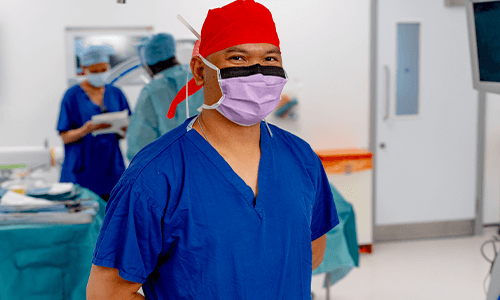Oaks Hospital Specialists
-
Mr Matthew Hynes
Mr Matthew Hynes is a Consultant Orthopaedic Surgeon, treats shoulder pain due to sports injuries, dislocations, impingement, rotator cuff tears, frozen shoulders, acromioclavicular joint pain, instability or arthritis.
Read more -
Mr Alain Iserin
Mr Alain Iserin is a Consultant Orthopaedic Surgeon in Essex and Oxfordshire who specialises in shoulder surgery
Read more -
Dr Mustafa Rashid
Dr Mustafa Rashid is a Consultant Orthopaedic Surgeon in Essex, who specialises in Shoulder Surgery
Read more -

Mr Jeremy Stanton
Mr Jeremy Stanton is a Consultant Orthopaedic Surgeon in Essex, Oaks Hospital.
Read more


